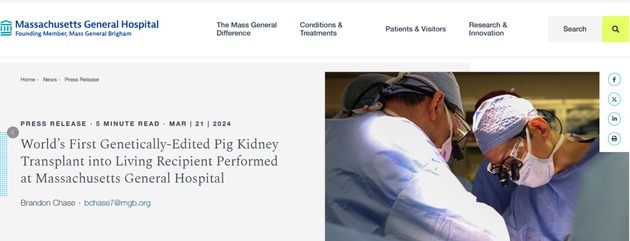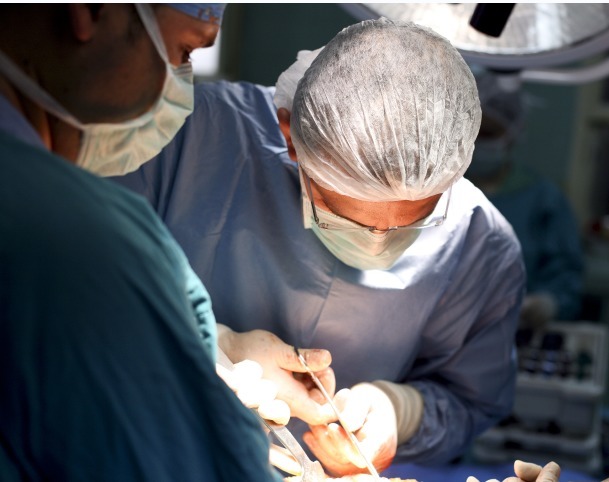According to a report by Xinhua News Agency, on March 22, Massachusetts General Hospital in the United States announced on March 21 that their medical experts have successfully performed a special transplant surgery on an American male patient with end-stage renal disease.
This involved transplanting a genetically edited pig kidney into his body, marking the first such case in the world. The patient has recovered well after the surgery and is expected to be discharged soon.

The hospital’s transplant center specialists carried out the four-hour-long surgery on March 16. The recipient of the pig kidney transplant is 62-year-old Richard Slayman. Slayman has suffered from type 2 diabetes and hypertension for many years and had been on long-term dialysis. He underwent a kidney transplant at the hospital in December 2018, but a few years later, signs of failure in the transplanted kidney emerged, necessitating a return to dialysis in May 2023. Subsequently, Slayman developed vascular access complications, and doctors recommended a pig kidney transplant. The U.S. Food and Drug Administration approved the transplant surgery based on “compassionate use” regulations.

Photo/VCG
The hospital stated that the pig kidney used in the transplant surgery underwent 69 genetic editing, including the deletion of genes that could cause human rejection responses and the addition of some human genes to improve the compatibility of the animal organ with the human body. Additionally, the research team inactivated retroviral genes within the pig to prevent potential viral effects on the transplant recipient. The hospital’s medical experts expressed hope that this transplant approach could bring hope to millions of kidney failure patients worldwide.
According to data from the United Network for Organ Sharing, a nonprofit organization in the United States, more than 100,000 people in the United States are waiting for an organ transplant and an average of 17 people die each day while waiting. To address the shortage of human organs, researchers have long been working on xenotransplantation, the transplantation of organs or tissues from one species to another.
Pigs are considered one of the best potential sources for xenotransplantation because their organ structure, physiological function, and size are similar to those of humans. However, there are still many challenges and risks associated with xenotransplantation that need to be overcome through scientific research and clinical trials.
Chinese researchers are also exploring the possibilities of animal organ transplantation. Zhu Tongyu, director of the Shanghai Key Laboratory of Organ Transplantation and director of the Organ Transplantation Branch of the Shanghai Medical Society, said: "In the latest experiment, after the animal organs were transplanted into the human body, the hyperacute (within 48 hours) rejection reaction that inevitably occurs in organ xenotransplantation from animal to human was successfully overcome. This means that it can at least be used as a short-term transition. The next step is to study the effects of accelerated rejection reaction (48 hours-5 days), acute rejection reaction (more than one week), and chronic rejection reaction."
Zhu Tongyu believes that there is less ethical controversy in conducting such organ transplant experiments on brain-dead patients. However, whether the experiment can be expanded to the normal patient population in the future still requires more scientific data about the experiment.


 川公网安备 51019002001991号
川公网安备 51019002001991号





